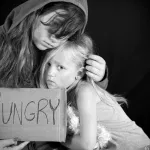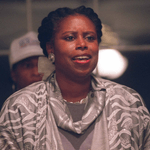
Kuku Sebsebe: Harmony that Traverses Time
Written by Teodrose Fikre, May 25, 2017
Music has a magical qualities to it; it’s as if harmonies can’t be constrained by the laws and logic of time. In much the same way that a serendipitous aroma can take us back to our childhood or remind us of a foregone love, music can transport our minds in a flash back to our youth. Although music is subjective—what is melodic for one person might beget an emotion of indifference in another—all of us can nonetheless agree that music is a universal source of delight for all even if the cause is different for each person.
Kuku Sebsebe, in this way, embodies the very essence of the music timeless nature for me. As I noted in an earlier article, my connection to Ethiopia is very abstract and notional for me. What I remember of youthful days growing up in Bole is more akin to remembering a scene I saw in a movie once instead of a memory that I actually lived. The only thing that brings my recollections about Ethiopia into sharp focus is music. I was raised at the lap of Ethiopian music; singers like Tilahun Gessesse, Mahmoud Ahmed, and Muluken Melesse were as omnipresent in my youth as social media has become prevalent for the generation that is growing up in the 21st century.
One name stands out above all in terms of a profound connection that a particular singer is able to engender in my mind. Kuku Sebsebe is a singer I requested above all when my mom asked me which cassette to listen to while we were driving around Addis Abeba. Before I raise the ire of countless Ethiopians, for debates over music can start battles as if we are El Salvador and Honduras fighting a war a soccer game, let me clarify that this is a personal opinion and not meant to elevate Kuku above all of Ethiopia’s amazing singers. While I acknowledge that singers like Mahmoud and Tilahun are bigger in terms of accomplishments and sheer impact in the music scene; on a personal level, it is Kuku Sebsebe who binds me to my land of birth the most.
Born in Addis Abeba, Ethiopia, Kuku was drawn to the microphone early in her formative years. At the age of nine, Kuku’s talent was evident and her father Dejazmach Sebsebe Shiberu nurtured Kuku’s talent and pushed her to perfect her gifts. It would be her father who later on gave Kuku’s collection of recorded music to Muluken Melesse. Muluken was arriving into his own at the time so the chance meeting paved a way for Kuku’s eventual entry into the Ethiopian music industry. Shortly after graduating high school, Kuku started to perform with the Wallia and Ibex band.
Kuku would go on to release copious albums over a 40 plus years singing career. In addition to her own albums, Kuku has sung with the who’s who of Ethiopian musical greats. Her voice is purely melodic as she croons with an alto voice about love and memories gone by. Her rendition of Tizita for me ranks up there in the top three versions. It’s only fitting that I love her version of Tizita almost as much as I love the version sang by Mahmoud Ahmed. Her voice is my tizita (memory) of a home I left long time ago. Once in a while, as I am driving in a car or writing an article, I listen to her songs and I instantly get transported back to Ethiopia and the days of my youth spent ridding around in Addis with my mom.
My all time favorite Ethiopian song is Kuku Sebsebe’s “Eche Nech Hagere”, where Kuku sings about the beauty and diversity of a country that I myself grew up singing the praises of. The intersection of her music and the words that she chooses to use to express her love of Ethiopia is thus my anthem of sorts. I used to know every word of that song when I was only six years old, I would walk around Bole singing “Eche Nech Hagere” even when there was no music to accompany me. Sublime, her music accompanies me now as I walk around Fort Collins. The past is connected to the present, music is the thread that bind it all together. #KukuMusika
“Music is the universal language of mankind.” ~ Henry Wadsworth Longfellow
If you appreciated this write up and enjoy music no matter the language, share this article on social media using #KukuMusika
Check out one of my favorites, if not my favorite music of all time, this is the song that connects me to what was once home but what remains forever in my heart. Ethiopia.
Teodrose Fikre
Teodrose was born in Ethiopia the same year Emperor Haile Selassie was deposed by the communist Derg junta. The great grandson five generations removed of Atse (emperor) Tewodros Kassa II, the greatest king of Ethiopia, Teodrose is clearly influenced by the history and his connection to Ethiopia. Through his experiences growing up as first generation refugee in America, Teodrose writes poignantly about the universal experiences of joys, pains and a hope for a better tomorrow that binds all of humanity.
Teodrose has written extensively about the intersection of politics, economic policies, identity, and history. He is the author of "Serendipity's Trace" and newly released "Soul to Soil", two works that inspect the ways we are dissected as a people and shows how we can overcome injustice through the inclusive vision of togetherness.
Latest posts by Teodrose Fikre (see all)
- “Otherizing”: Peddling Separable Grievances and Preventing Inclusive Justice - October 10, 2017
- One Common Nemesis; 50 Different of Grievances - October 8, 2017
- Solidarity Borinquen: Wall Street Degenerate Gamblers, Derivative Terrorists and the Havoc They Wrought - October 6, 2017











A very great commentary based on real and live music exepireance. I love most of Ethiopian legendary singers but kuku is my of all the time favorite. I love her voice and how she say the words of lyrics on her own slang. She is a real diva.
0
0